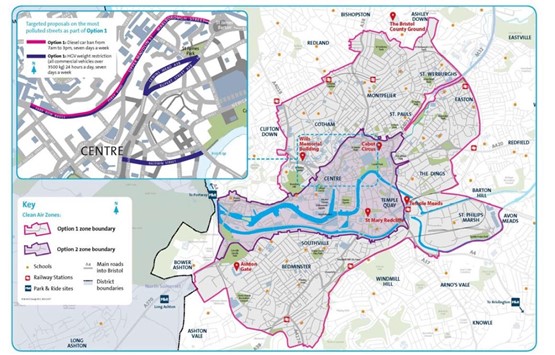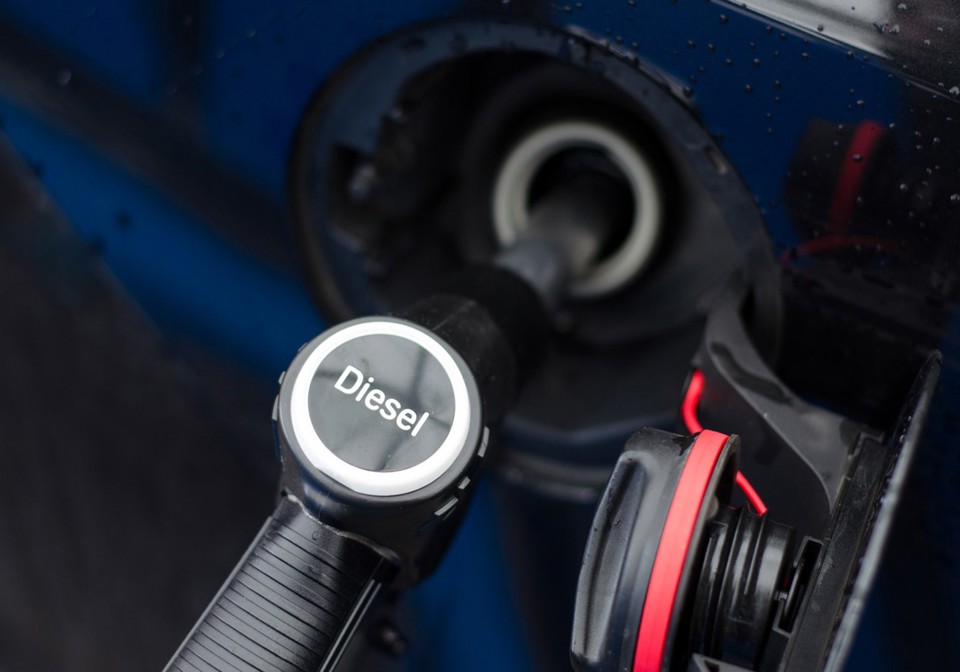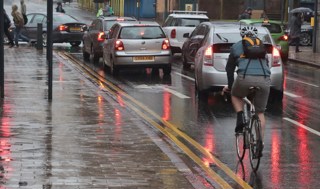Bristol City Council is proposing a diesel vehicle ban combined with a clean air zone charge as part of a “bold approach” to tackle air quality.
The proposal would see all diesel vehicles banned from a small area in the city centre and a larger charging zone for older, less efficient commercial vehicles such as buses and taxis.
Private cars would be included in the small area ban, but would not face charges.
A scrappage scheme for older diesel vehicles would also be launched.
If they are approved by the council’s cabinet on November 5 and then accepted by government, the changes will be introduced in March 2021.

Bold approach
According to Bristol City Council’s outline business case (OBC) for the move: “This bold approach demonstrates both our commitment to clean air and our wider commitment to tackling climate change in the city; both of which require step changes to tackle these challenges.
“To support this option and support businesses and residents impacted, a wide range of mitigation measures are being considered. Amongst others these include: a scrappage grant scheme and provision of grants to businesses affected; cycling, walking, bus and traffic management infrastructure schemes; further sustainable travel choice programmes; and ensuring exemptions and concessions are in place for certain groups such as blue badge holders and emergency vehicles”.
FTA view
The Freight Transport Association (FTA) has however voiced concerns over the proposals and asked for great clarity on council’s plans. Chris Yarsley, FTA’s policy manager for the south west of England, said: “As the voice of the UK logistics industry, FTA is calling for Bristol City Council to provide clarification on its proposals for Clean Air Zone in 2021; the lack of detail is alarming and leaves local businesses in the dark on how to proceed with business planning.
“FTA is particularly concerned about proposals for a ‘diesel vehicle ban’ in the city centre. Will the ban operate at peak hours or 24/7? While previous consultations only discussed a ban on cars, it is now unclear whether lorries and vans will also be included. If so, how does the Council expect goods to be delivered to supermarkets, businesses and homes? There are currently no viable alternatives to diesel-run lorries. Furthermore, the proposed scrappage scheme appears to only be open to residents of private cars – what help will be provided to commercial vehicle operators and those who need LCVs for their jobs, including self-employed business people?
“While FTA and its members support the Council’s commitment to improving air quality in the city, announcing a proposed scheme with such little detail is unfair to the businesses and individuals who work tirelessly to keep the local economy afloat.”
SMMT – blanket ban
Mike Hawes, SMMT Chief Executive, said, “Industry wants to see all cities, including Bristol, meet their targets and continues to invest in ever more advanced technology to help improve our environment. However, this proposed blanket ban, which goes against government’s guidelines, fails to distinguish between modern vehicles and decades-old technologies and will only cause confusion for drivers while also undermining efforts to boost air quality.
“Instead, we need a clear and consistent national approach to clean air zones that incentivises uptake of the latest, low emission vehicles, including new Euro 6 diesels, which are the cleanest ever produced, alongside improvements to traffic flow and investment in charging infrastructure.”
Next step
Bristol City Council’s website states that detailed implementation information will be developed as part of the process of producing the Full Business Case (FBC) which is required to be submitted to JAQU in February 2020. Further consultation will take place in relation to the detail of the implementation of the preferred option. “The Council will be coming forward with plan for a series of stakeholder activity which will be informed in part by the detailed outcomes of the consultation”.
A public consultation programme was run from July 1, 2019, to August 12, 2019. A total 5,034 consultation responses were received.
More information on the UK's proposed clean air zones (CAZs) can be found here.




















Peter - 30/10/2019 11:43
So after a lengthy consultation on two options, Bristol City Council has proposed to do neither, or rather both at the same time. Apart from typos and poor grammar, the report still has lots of questions to answer, not least on whether there has been effective consultation given that the proposed scheme was not an option. There seems to have been little work done on driver behavior and its impact if a diesel exclusion zone is introduced.